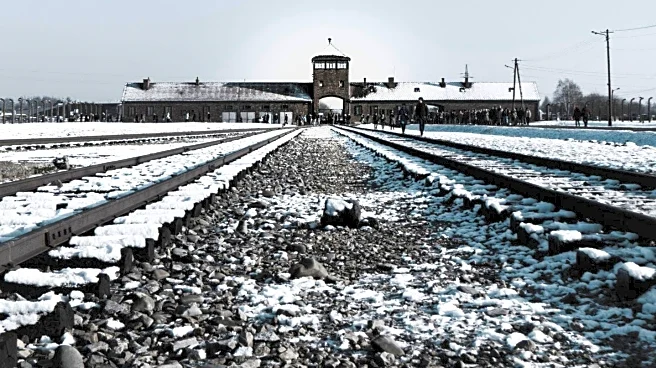What's Happening?
Poland has transformed a nearly 20-mile network of underground Nazi tunnels, known as Festungsfront Oder-Warthe-Bogen or the Ostwall, into an army museum. Located near the village of Pniewo, these tunnels were originally constructed before World War II
as part of Adolf Hitler's plan to fortify Germany's eastern frontier against Poland and the Soviet Union. Although the project was abandoned in 1945, the museum now offers tours that recreate the underground life of Third Reich soldiers, complete with mannequins in uniform. The museum, which opened in 2011, showcases administrative rooms, sleeping areas, and bathrooms, providing visitors with a glimpse into the historical significance of these fortifications.
Why It's Important?
The transformation of these tunnels into a museum serves as a significant historical and educational resource, offering insights into the military strategies and living conditions during the Nazi era. It highlights the advanced engineering and strategic planning involved in the construction of one of the world's most sophisticated fortifications. This initiative not only preserves history but also educates the public about the complexities of wartime infrastructure and the impact of Nazi military ambitions. The museum attracts visitors interested in dark tourism, contributing to Poland's cultural and historical tourism sector.
What's Next?
The museum continues to draw visitors interested in exploring the remnants of Nazi military history. As interest in dark tourism grows, the museum may expand its offerings or enhance its exhibits to provide deeper insights into the historical context and significance of the Ostwall. Additionally, ongoing preservation efforts will ensure that the tunnels remain accessible and informative for future generations.
Beyond the Headlines
The museum's existence raises ethical questions about the portrayal of Nazi history and the balance between education and sensationalism in dark tourism. It also reflects broader cultural shifts in how societies confront and interpret difficult historical narratives, emphasizing the importance of preserving history while fostering critical reflection on past atrocities.
















